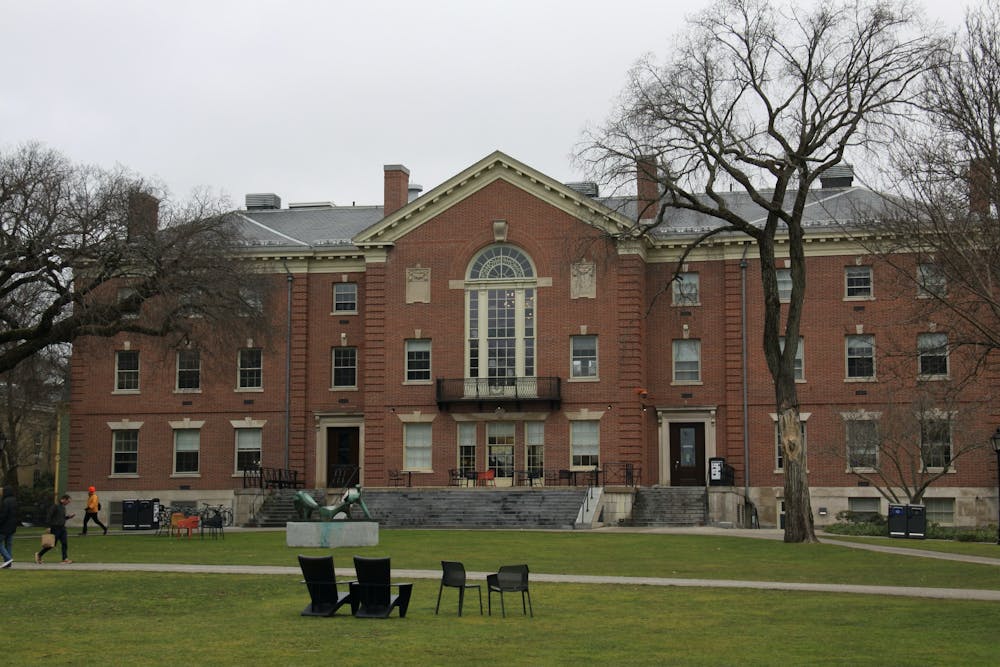As of May 3, the Labor Organization of Community Coordinators has completed six bargaining sessions with the University. Since its formal recognition in the fall, LOCC has proposed sixteen contract articles. The University has proposed one new article which outlines the roles and tenets of the Community Coordinator position.
Several of the articles proposed by LOCC would establish its rights as a union. According to LOCC bargaining committee member Anna Ryu ‘25, these articles contain language adapted from the bargaining agreements of the Graduate Labor Organization and the Teaching Assistant Labor Organization.
One of LOCC’s central bargaining priorities is increased compensation. Brown CCs currently receive an annual $10,500 stipend. LOCC’s most recently proposed compensation article includes stipends of $9,940, $7,504, and $2,000 — totaling $19,444 — to cover fees for standard rooms, standard board and services rendered, respectively.
The clause adds that the proposed CC stipend “shall have no bearing on the financial aid offered by the University.” The article also proposes clauses on seniority pay and ad hoc work compensation.
The University’s most recent counterproposal to the compensation article raises the annual $10,500 stipend to $12,000 but does not include any additional compensation or clauses, according to a copy of the counterproposal provided by LOCC.
Another article proposed by LOCC, titled “Resident Ratios and Role Responsibilities,” asks that the Office of Residential Life assigns “no more than 45 residents to each CC in Upper Division Housing and Greek, Program, & Theme Housing” and “no more than 35 residents to each CC in First Year Experience Housing.”
While the University did not challenge these ratios in their original set of proposals, a second version did not include the proposed article. Both articles were provided by LOCC and reviewed by The Herald.
“It was regressive and disappointing because this is a really large component of ensuring equal working conditions across Community Coordinators,” bargaining committee member Elijah Puente ’26 said.
University Spokesperson Brian Clark wrote in an email to The Herald that “The proposal from LOCC groups together subjects that impact other areas of the contract or other proposals. We partially responded to the proposal and reserved the right to review and amend other sections.”
“During the bargaining process, all proposals are considered open and amendable as conversations around the entire contract develop,” Clark added. “Until a particular article has been agreed to by a tentative agreement and initiated by both sides, it is open for revision.”
Puente expressed frustration regarding the current progress in negotiations. “I don’t think much progress has been made toward improving working conditions,” he said.
“It’s been difficult to feel like there’s progress, especially when counterproposals we receive don’t actually feel like they’re counter-proposing things,” Ryu said. “It just feels like they’re just telling us what isn’t going to work.”
According to Clark, “The University's proposals have clarified roles and responsibilities, offered an increase in compensation and responded to other ideas offered by union representatives.”
“Exchanging proposals and counterproposals and working through details is a natural part of collective bargaining negotiations, and we continue to work with the union in good faith,” Clark added.
“It is true (that) we wanted more clarity and specificity clearly defined in our contract around (our responsibilities), so it’s great that they’re acknowledging that,” Ryu said. “It’s challenging because they still seem a bit unclear on many of their counterproposals.”
“A union contract provides the framework for the work of a group of employees, outlining the basic tenets of the roles and duties of a particular position,” Clark wrote. “It is not intended to be a document by which all roles and responsibilities are thoroughly detailed, given the role of a department in deciding the day-to-day work of employees.”
LOCC still aims to have a contract in place by the next academic year. “At this point, it’s clear we will be meeting throughout the summer,” Ryu said.
Correction: A previous version of this article listed the incorrect proposal by LOCC counterproposal offer by the University for the total Community Coordinator stipend. The Herald regrets the error.
Grace Hu is a senior staff writer covering graduate student life. She is a sophomore from Massachusetts studying English and Neuroscience.





